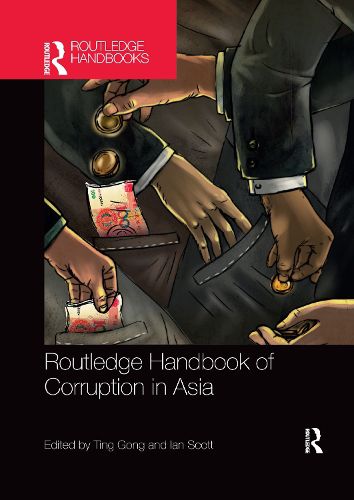Readings Newsletter
Become a Readings Member to make your shopping experience even easier.
Sign in or sign up for free!
You’re not far away from qualifying for FREE standard shipping within Australia
You’ve qualified for FREE standard shipping within Australia
The cart is loading…






Corruption in Asia ranges from the venal rent-seeking of local officials to the million-dollar bribes received by corrupt politicians; from excessive position-related consumption to future job offers in the private sector for compliant public servants; from money-laundering to ‘white elephant’ projects that do little more than line the pockets of developers and their political partners.
The Routledge Handbook of Corruption in Asia addresses the theories, issues and trends in corruption and anticorruption reform that have emerged from this diverse experience. The book is divided into four major parts: corruption and the state; corruption and economic development; corruption and society; and controlling corruption: strategies, successes and failures. Chapters compare and contrast corruption in different social and institutional contexts, examine both successful and unsuccessful attempts to control it, and consider what lessons can be drawn from these Asian experiences.
This academically rigorous and insightful book will be of interest to a wide range of students and scholars, particularly those of Asian studies, politics and sociology.
$9.00 standard shipping within Australia
FREE standard shipping within Australia for orders over $100.00
Express & International shipping calculated at checkout
Corruption in Asia ranges from the venal rent-seeking of local officials to the million-dollar bribes received by corrupt politicians; from excessive position-related consumption to future job offers in the private sector for compliant public servants; from money-laundering to ‘white elephant’ projects that do little more than line the pockets of developers and their political partners.
The Routledge Handbook of Corruption in Asia addresses the theories, issues and trends in corruption and anticorruption reform that have emerged from this diverse experience. The book is divided into four major parts: corruption and the state; corruption and economic development; corruption and society; and controlling corruption: strategies, successes and failures. Chapters compare and contrast corruption in different social and institutional contexts, examine both successful and unsuccessful attempts to control it, and consider what lessons can be drawn from these Asian experiences.
This academically rigorous and insightful book will be of interest to a wide range of students and scholars, particularly those of Asian studies, politics and sociology.